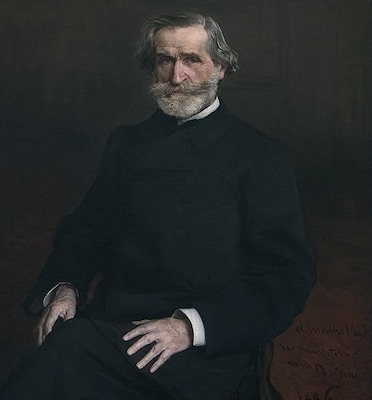
La Biografia
Giuseppe Verdi, rinomato compositore italiano, nacque il 10 ottobre 1813 a Le Roncole, un piccolo villaggio vicino a Busseto, Italia. Nonostante le sue umili origini, studiò musica a Busseto e successivamente al Conservatorio di Milano.
Verdi trascorse la maggior parte della sua vita in Italia, ma visitò anche frequentemente Parigi grazie al successo delle sue opere. La sua vita privata fu segnata dalla tragedia con le morti premature della sua prima moglie, Margherita, e dei loro due figli. In seguito, sposò Giuseppina Strepponi, una ex soprano.
Le opere significative di Verdi includono “Rigoletto” (1851), “Il Trovatore” (1853), “La Traviata” (1853), “Aida” (1871) e “Falstaff” (1893).
L’Italia celebra l’eredità di Verdi attraverso numerosi monumenti e il museo Casa Verdi a Milano. Inoltre, l’annuale Festival Verdi di Parma è dedicato alla rappresentazione delle sue opere.
Un fatto meno noto: Verdi fu anche un filantropo. Fondò Casa Verdi, una casa di riposo per musicisti a Milano, che è ancora in funzione oggi.
Verdi morì il 27 gennaio 1901 a Milano. Le sue spoglie sono sepolte alla Casa di Riposo per Musicisti, la casa di riposo per musicisti che contribuì a fondare.
(Testo generato da ChatGPT4, giugno 2023. Revisione contenuti e formattazione a cura di Manuela Filomena)
Biography
Giuseppe Verdi, renowned Italian composer, was born on October 10, 1813, in Le Roncole, a small village near Busseto, Italy. Despite his humble beginnings, he studied music in Busseto and later at the Milan Conservatory.
Verdi spent most of his life in Italy but also frequently visited Paris due to his successful operas. His private life was marked by tragedy with the early deaths of his first wife, Margherita, and their two children. Later, he married Giuseppina Strepponi, a former soprano.
Verdi’s significant works include “Rigoletto” (1851), “Il Trovatore” (1853), “La Traviata” (1853), “Aida” (1871), and “Falstaff” (1893).
Italy celebrates Verdi’s legacy through numerous monuments and the Casa Verdi museum in Milan. Additionally, the annual Verdi Festival in Parma is dedicated to performing his operas.
A lesser-known fact: Verdi was also a philanthropist. He founded Casa Verdi, a retirement home for musicians in Milan, which is still in operation today.
Verdi died on January 27, 1901, in Milan. His remains are interred at the Casa di Riposo per Musicisti, the musicians’ retirement home he helped establish.
(Text generated by ChatGPT4, June 2023. Edited for style and content by R.H. Ruggles)
Risorse Internet

